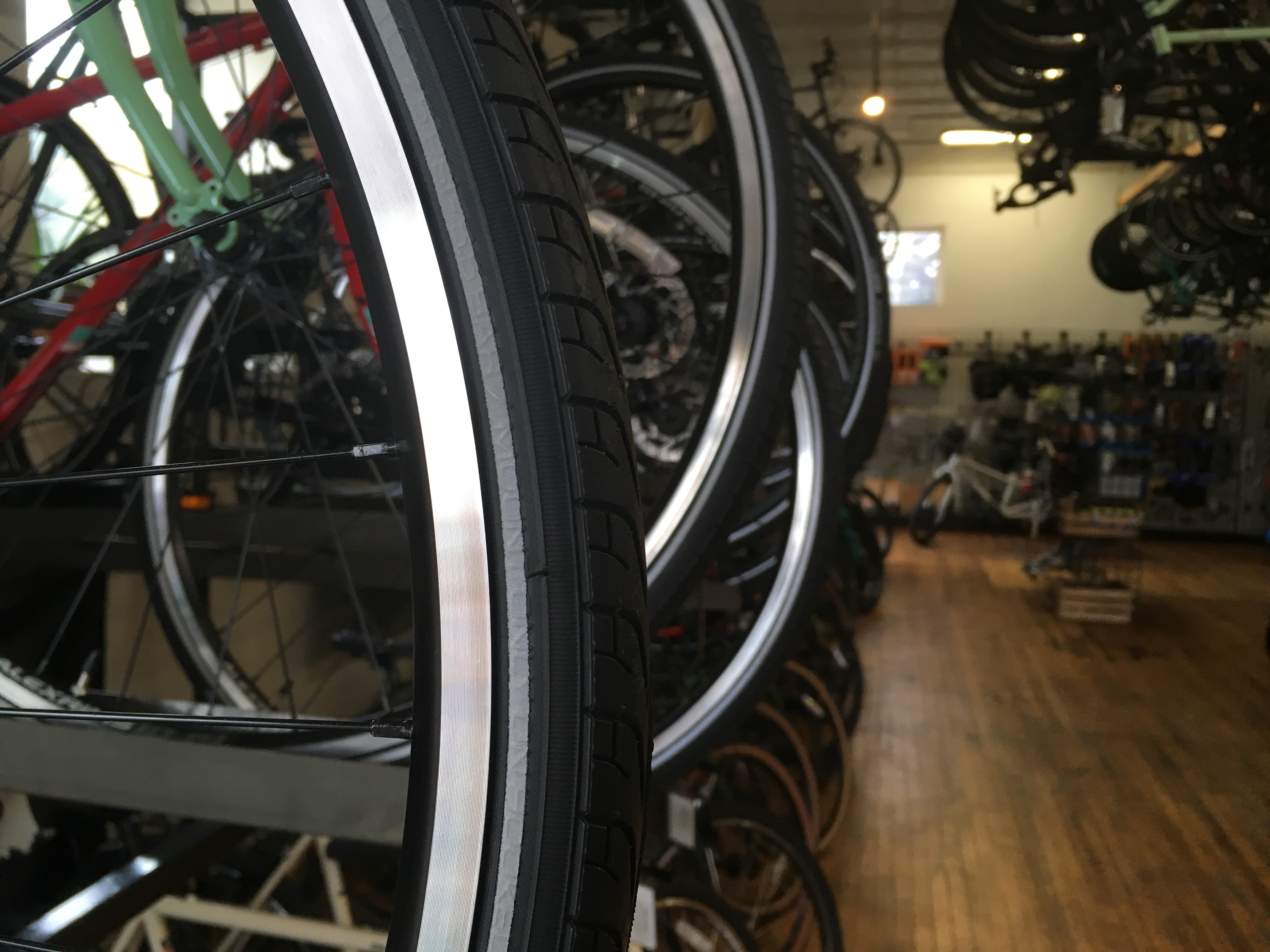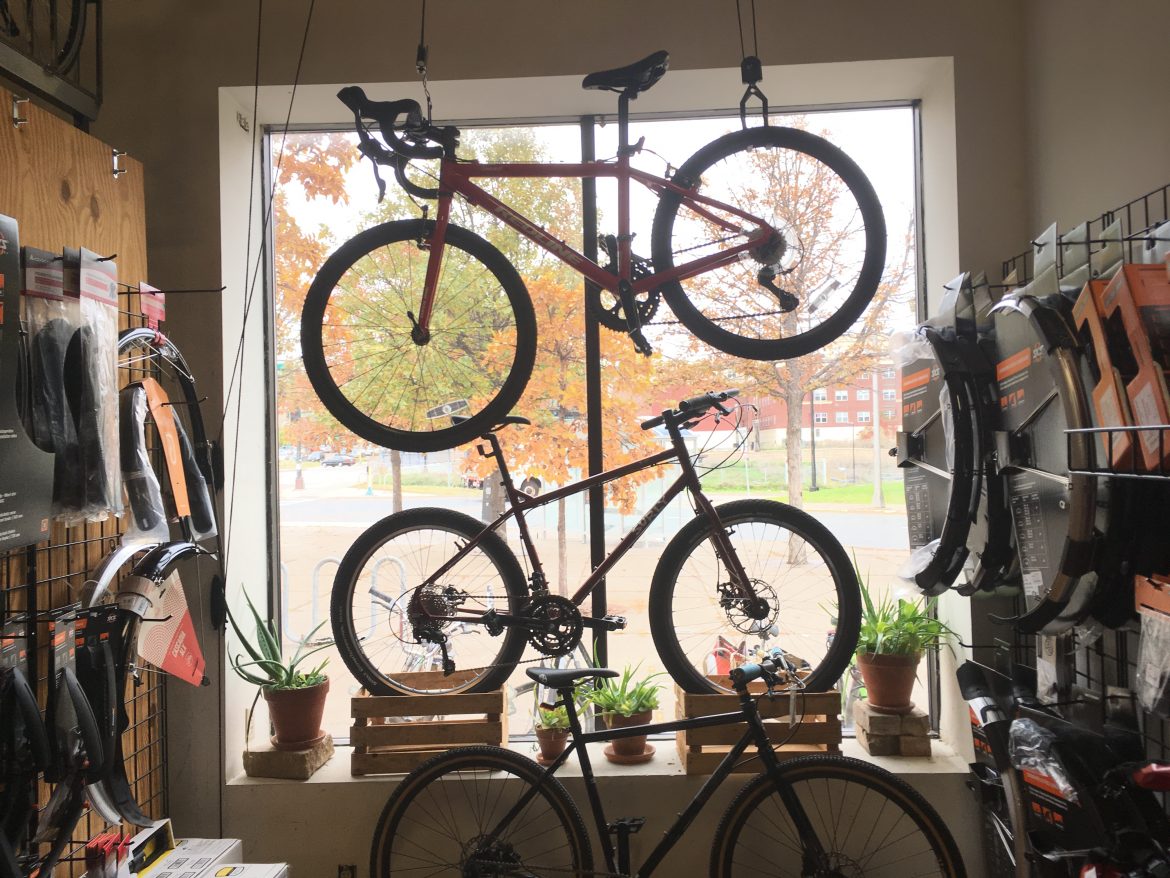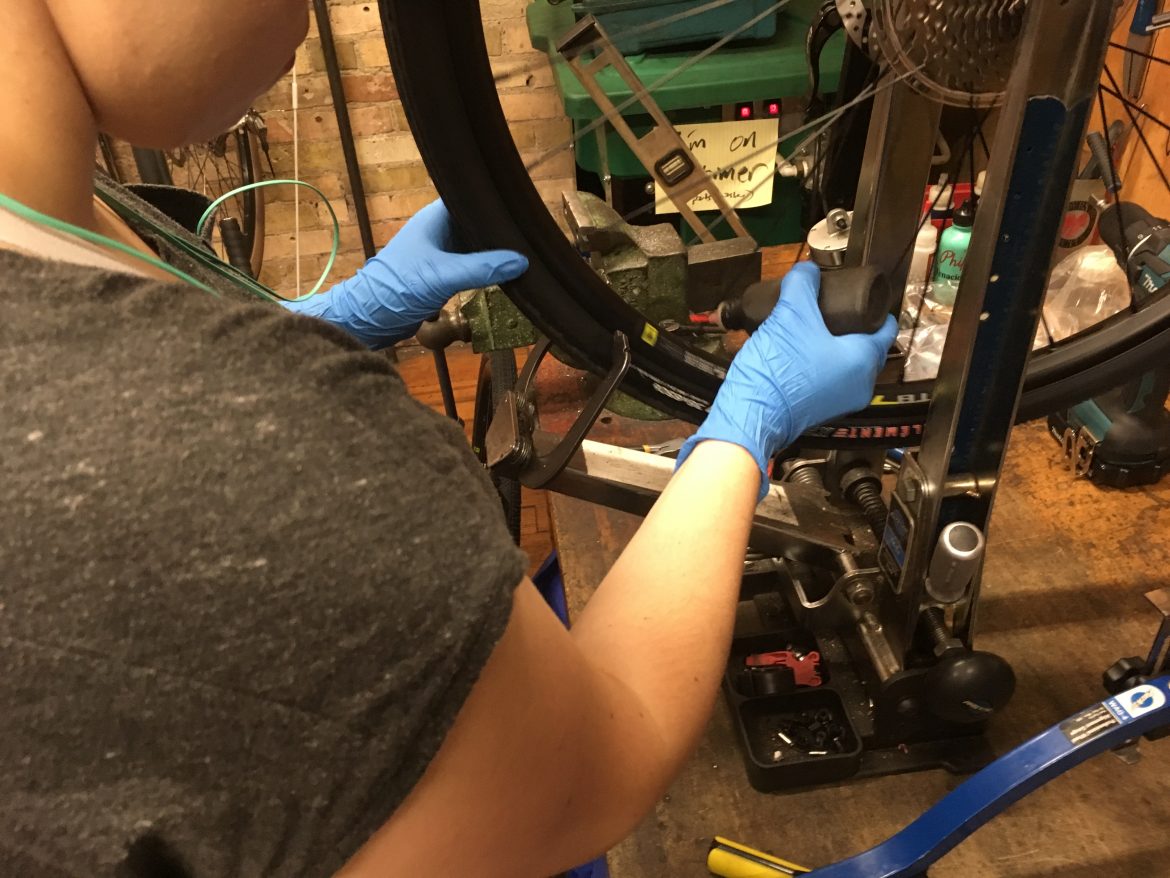

Share
“All types of bikes for all types of people,” is the slogan for The Hub Bike Co-op in South Minneapolis. It’s a simple slogan, yet it summarizes a crucial and heavily valued aspect of the shop: diversity. Not only diversity of people, but diversity of thought, experiences, and opinions. This diversity, unlike in other business models, has the opportunity to manifest itself in business decisions through cooperative thinking and consensus decision making among all of The Hub’s employees.
The Hub is a worker cooperative, meaning the employees of the shop are also its owners. There are no outside shareholders or investors who dictate how the company is run, and there are no managers or bosses. The decisions are voted on democratically by either the workers or worker-owners.
Worker vs. Worker-Owner
“Legally, the worker-owners are the board of the company,” said Will Mackin, a worker-owner who’s been a part of the co-op for 11 years. Worker-owners are employees who make a long-term commitment to the shop, while displaying the type of conduct, values and norms the Hub wants to represent, he said. They have to work at least 1,000 hours, which is about a full-season.
All worker-owners own a single $2,000 share of the company. That’s it — one share, one vote. The Hub also provides worker-owners with health benefits, but that puts a limit on how many worker-owners they can afford to have.
Worker-owners are different from workers. They have more legal and financial stake in the company and are the ones who discuss and vote on major decisions such as finances, hiring or firing and long-term planning at worker-owner meetings.

Meetings
“If you’re a non-worker-owner, you have a vote at general meetings and department meetings. The only place you don’t have a vote is at the owner meetings. Non-owners can attend the owner meetings, present agenda items and proposals. They just don’t have a vote at that level,” Mackin said.
General meetings happen monthly and include everybody in the company. “They’re often used as a training venue or check-in,” he said, “Here’s where the sales stuff is at. Here’s where the money is at.” Department meetings involve only the workers stationed in a certain division of the shop, like sales or mechanics. Each department has relative freedom when it comes to everyday decisions.
“If you’re a parts buyer, you don’t have to bring every order to the group and ask if everybody is okay with everything on this list,” Mackin said. “Once things affect the whole co-op, that’s where it comes to a general meeting or a worker-owner meeting.”
“One Share, One Vote.”
If an employee has an idea of how to improve the shop, they can propose it to the worker-owners. The worker-owners then analyze its costs and benefits and bring it to the group. After further discussion, the worker-owners vote yes, neutral, stand-aside or block.
According to Mackin, voting neutral means you don’t have an opinion or if you don’t feel like you have the information needed to make an informed choice. A stand-aside vote is like a “soft no,” indicating there’s a personal issue about the proposal, but it is not going to negatively affect the shop. A proposal doesn’t pass if one-third of the votes are stand-aside. A block vote is a “hard no.”
“You can reach a type of deadlock if you’re not careful.” Mackin continued, “If there’s not consensus on what a given issue is or how to approach it instead of having a team of people that has a unified purpose and shared mission, you can have a group of people with conflicting ideas who want their own personal vision of this thing to happen. You have no cohesion when everybody has their own agenda.”
The ability and willingness to cooperate is essential for working in a co-op. “Consensus decision-making means that you may not 100 percent agree with a decision that was made, but that you have faith in the group to make the best decision for the group,” said Mackin.

Embracing a Diversity of Opinions
Everybody having equal say in how a business is run can sometimes be inefficient, but Mackin believes that this diversity helps The Hub attack problems from different angles. “By not relying on a center figure in an organization, you don’t lose out on the diversity of opinions,” he said.
“In a business management sense, you’ve allowed a person who is maybe at a lower level in the company, more junior or newer, people of color, or people who have historically not been where people look for solutions to this issue, a forum, and agency and access. You have more brains on the problem.”
The problem is then met with a broader analysis. It’s similar to video game development. When a game is in beta-testing, the developers usually release it to thousands of people. These players find and comment on problems they see in the game, problems the developers have usually overlooked.
The Hub’s Place in a Movement
Minnesota has a rich history of co-ops and is a national leader in the cooperative enterprise by almost every measure, according to a study by Emily Anderson and Tom Pierson for the Minneapolis Office of Community Planning and Economic Development. There are currently 46 co-ops statewide, and 10 of which are worker co-ops.
Let alone being one of the only successful worker co-op startups, it’s one of the only worker co-ops to begin with three or four members. Since its founding in 2002, The Hub has added two additional locations and employed 46 people in 2016.
“There’s nothing inherently good about a co-op in and of itself,” Mackin remembered one of his co-workers saying. “A co-op is only as good as the people that are in it.”

